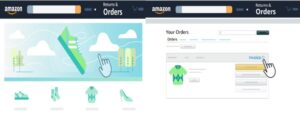Selling online in European ecommerce platform
With the help of FLEX. Logistics for selling online 3PL with warehouses in Poland and Germany (and more locations coming). Which specialize in processing shipments to Amazon selling in Europe, pre-Amazon storage, FBA prep and forwarding to fulfillment centers as well as B2C/B2B fulfillment. We are presenting 7 basic steps you need to follow to start online selling on Amazon in the European Union.
Step 1. Find an accountant in the EU
Before you even start sourcing your goods in Asia or sending the stock to Amazon fulfillment centers in Europe. You need to find yourself an Ecommerce accountants or accounting service provider capable of settling your VAT tax obligations in the European Union. If you plan to sell only in a single country e.g. in Germany, a local accountant will be able to handle your taxes; but if you plan to use Amazon selling FBA warehouses in several countries or even use Pan-EU FBA program, you definitely need more than that. There are several accounting service providers who work with Amazon sellers in the EU and can take care of your monthly VAT settlements in all the countries you will fulfill your B2C orders from. All of them provide a highly automated service and it won’t require you to spend much time on taxes – all your transactions will be downloaded automatically from Amazon, settled and will require you to simply pay your VAT due to the indicated bank accounts of the local tax offices.
Step 2. Register your US / UK business for VAT in Europe
In order to be able to successfully import into the European Union, keep your stock in Amazon warehouses and start selling online, you need to obtain a VAT registration for your business. If you plan to use ecommerce sell online, which in general allows you to lower shipping costs of your orders to your clients, you will have to register your US/UK business for VAT in 7 EU countries (as of January 2022). It will take between a few weeks to a few months in each country to obtain a VAT number. Amazon partners with some accounting service providers, who can register your business for VAT in the EU – Amazon promotions will allow you to get the VAT numbers even for free.
Step 3. Register your US / UK business for EORI EU
Even if you have already been selling online in the EU before Brexit (United Kingdom has left the European Union on 31 January 2020), and you most probably have your EORI UK registration, it is no longer valid in the EU. You need to register your US/UK business for EORI EU in one of the EU countries in order to be able to clear the customs on your imports into the EU.
In some EU countries it may take around a month to get an EORI number, others will issue your EORI EU number in 3-5 business days. You can only have a single EORI EU registration, in any EU country, and it will be valid in all the other EU countries e.g. you will use your EORI FR number for the customs clearance in Germany, Spain etc.
Step 4. Make sure your freight forwarder has experience in shipping to the EU
Not all the EU countries are equal when it comes to customs clearance. In some, it will be hard for you, as a foreign business without a physical presence in the EU, to clear the customs on your imports. The customs office will require you to set up an Importer of Record or Fiscal tax representative, which will always cost you extra and cause delays in processing the customs clearance. Based on FLEX. experience, we suggest you import into the EU via Poland or via Germany – there are several details to take into consideration, please contact FLEX. Logistics in advance to talk about pros and cons of each available option.
Step 5. Check if your goods comply with the EU requirements
European Union is known for its consumer rights and thousands of requirements a product has to comply with in order be available legally for sale in the EU. Depending on the type of the product, you need to make sure it is labelled properly (for example a made of materials are listed on a product label/tag), has required certificates and test results, and its labels are in all local languages of the countries/marketplaces it will be sold on.
Step 6. Get you your EPR registration
Extended Producer Responsibility (EPR) is an environmental policy that holds the party who first places an EPR-applicable product in the country (also known as the “producer”) responsible to mitigate the environmental impacts of their product for its entire life cycle from design to the end of its life (including waste collection, treatment and customer take-back). If you plan to sell in Germany or France. You need to register your business for Extended Producer Responsibility (EPR) number starting December 15, 2021, for packaging in Germany and from 2022 for WEEE (Waste from Electrical and Electronic Equipment) in Germany and all EPR product categories in France.
Amazon partners with several service providers who can register your business for EPR and make sure you comply with the requirements on an ongoing basis.
Step 7. Work with experience customs agent
You should work with a customs agent before you even place your orders with Chinese suppliers. FLEX. Logistics has partnered with experienced customs agents in Poland and Germany, who are always looking for a effective solutions when processing the customs clearance on your containers, pallets or boxes. The import documents should be checked in advance to avoid delays in the customs clearance or the goods being rejected by the customs due to lack of required certificates, declarations, test results or improper commercial invoice. Once the customs is done, the goods are being transported to FLEX. warehouses for storage and forwarding to Amazon fulfillment centers in Germany, Poland, France, Italy, Spain, the Netherlands, Czech Republic or Sweden.
Step 8. Start working with a local 3PL for pre-Amazon storage and forwarding to Amazon fulfillment centers
Once you have all the paperwork in place, you can start importing your goods into the EU. In order to avoid Amazon FBA logistics nightmare, we suggest you work with a 3rd-party logistics warehouse for your pre-Amazon storage, FBA prep, forwarding to Amazon fulfillment centers and Amazon removal orders. FLEX. Logistics can help you optimize the workflow of your cargo to Amazon fulfillment centers in Europe and offers pre-Amazon storage solutions which are on average 3-4 times less costly compared to keeping all your stock with Amazon. Not to mention FLEX. takes care of forwarding your Amazon shipping orders to FBA and handles your Amazon returns and removal orders. In case you need to relabel your products with new FNSKU labels – FLEX. Logistics can also receive your Amazon returns and removal orders, provide test & check, relabeling, re-boxing and ship them back to FBA, or simply palletize them and send them back to your place anywhere in the world.
Make sure your contact FLEX. Logistics for a quote on storage and forwarding to Amazon in Europe!
FLEX. Logistics – an ecommerce 3PL with warehouses in Poland and Germany, which specialize in processing shipments to Amazon FBA: pre-Amazon storage, FBA prep and forwarding to Amazon fulfillment centers in Germany, Poland, France, Italy, Spain, Czech Republic and the United Kingdom. Customs clearance and processing removals orders available. FLEX. provides a comprehensive logistic solution for businesses who sell online on Amazon, Cdiscount, eBay, Otto, Bol (and several other e-commerce marketplaces) in the EU or plan to enter the third ecommerce market in the world.
FLEX. partners with contractors (trucking companies, customs agents, courier companies etc) who deliver solutions rather than cause problems and delays in delivering your cargo to Amazon fulfillment centers in the EU. It is also a go-to provider when it comes to cross-border B2C/B2B fulfillment services in the European Union.


